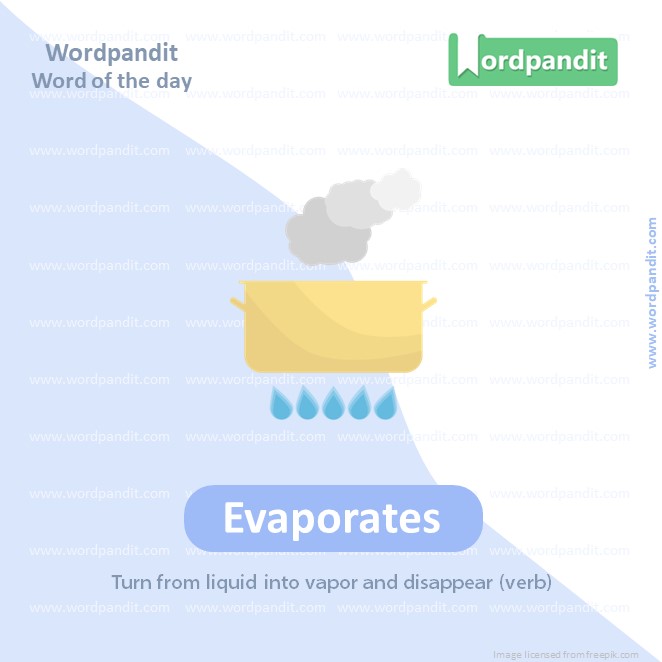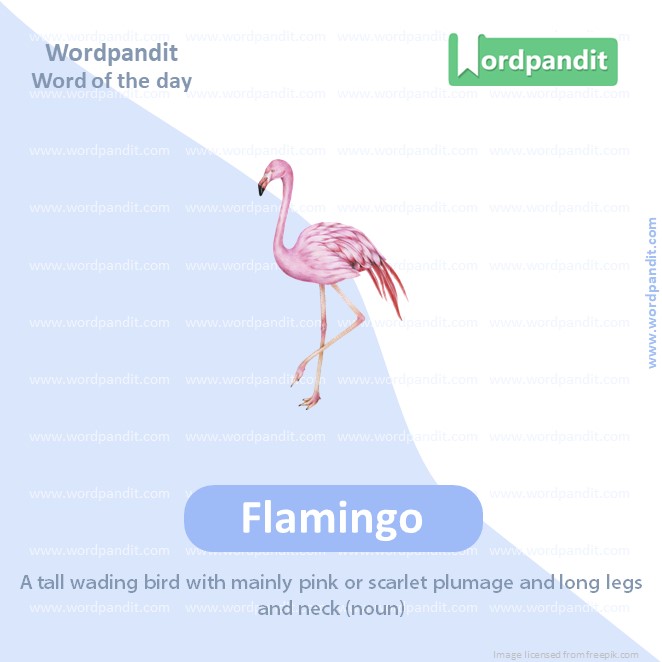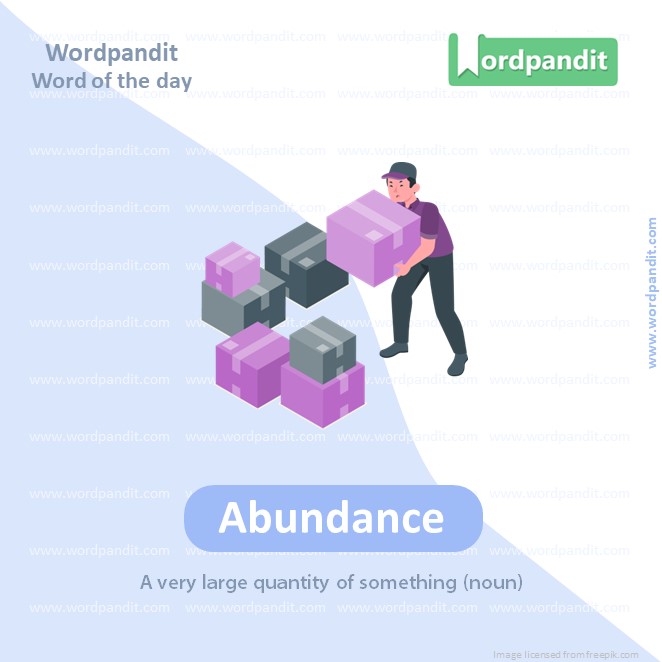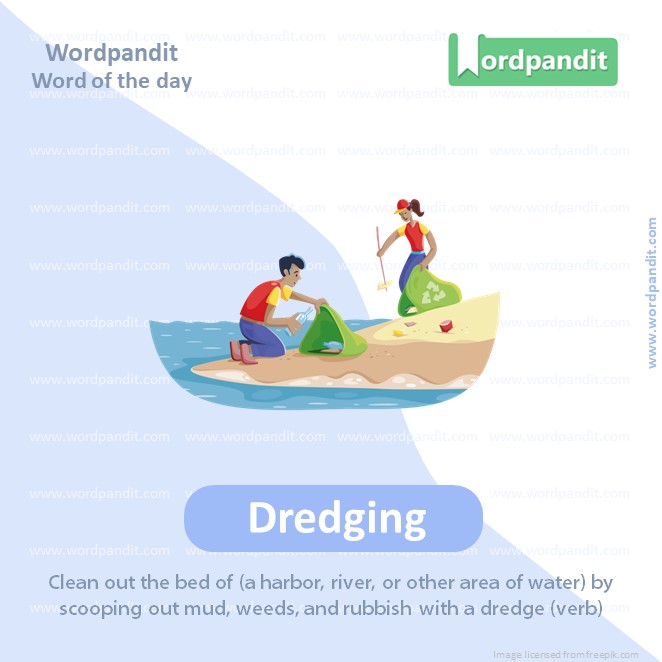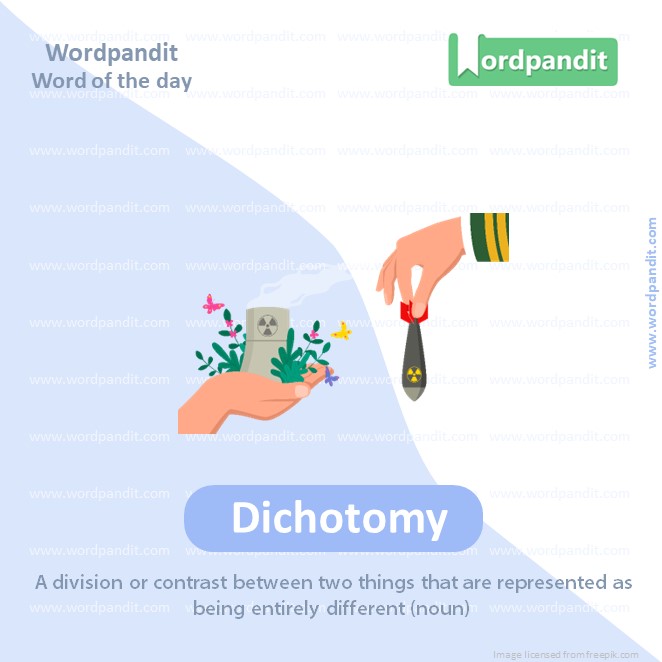Daily Vocabulary from International Newspapers and Publications
Expand Your Vocabulary with Wordpandit’s Global Vocabulary Hub
At Wordpandit, we are committed to helping you develop a truly global vocabulary by drawing from some of the most respected international publications. This section is designed to keep you ahead of the curve by introducing you to words that define global conversations and trends.
The Power of Global Sources
To help you think and communicate on a global scale, we curate vocabulary from renowned international sources, such as:
- The New York Times
- The Washington Post
- BBC
- The Guardian
- The Economist
- Scientific American
- Psychology Today
- And many more...
Stay Global, Stay Competitive
Our daily updates from international publications ensure you are consistently exposed to new words that reflect global news and developments, making sure your vocabulary is not only current but also globally relevant.
Enhance Your Global Perspective
Whether you’re preparing for international exams, aiming to excel in global business communication, or want to enhance your language skills for personal growth, Wordpandit offers the resources you need to thrive in a global context.
Effective Learning, Global Reach
Our learning methodology combines global examples, memory aids, and interactive activities, allowing you to internalize new words effectively and apply them in real-world scenarios.
Begin Your Global Vocabulary Journey Now!
Why Choose Wordpandit?
Practical Learning: Focus on words you'll actually encounter in real-world reading, enhancing your comprehension and communication skills.
Diverse Content: From current affairs to scientific breakthroughs, our varied sources expose you to vocabulary across multiple domains.
Effortless Integration: Make Wordpandit a part of your daily routine. Just a few minutes each day can significantly boost your lexicon over time.
Your Path to Vocabulary Mastery
- Visit our Daily Vocabulary section regularly
- Explore new words and their usage in context
- Practice incorporating these words into your own writing and speech
- Track your progress as your vocabulary expands
Start Your Journey Today
Embark on your vocabulary enhancement journey with Wordpandit. By consistently engaging with our daily posts, you'll build a robust vocabulary that serves you well in academic, professional, and personal contexts.
Remember, a word a day keeps linguistic limitations at bay. Make Wordpandit your daily companion in the quest for vocabulary excellence!
WORD-1: Evaporates
Context:
"Pumped to evaporation ponds, the brine evaporates to leave behind a mixture rich in lithium and other salts." - Scientific American
Explanatory Paragraph:
The word "evaporates" refers to the process by which a liquid gradually turns into a gas, often due to heat or exposure to air. It is commonly used in scientific, environmental, and everyday contexts to describe how water, chemicals, or other liquids disappear into the air. For example, when a puddle dries up under the sun, the water evaporates.
Meaning: To change from a liquid to a gas; to vanish gradually (Verb)
Pronunciation: ih-VAP-uh-rayts
Difficulty Level: ⭐⭐ Beginner
Etymology: Derived from Latin *evaporare*, meaning "to disperse in vapor."
Prashant Sir's Notes:
Commonly searched phrases for "evaporates" include "water evaporates at what temperature," "does alcohol evaporate," and "how sweat evaporates." These searches highlight the scientific and practical curiosity people have about evaporation in daily life.
Synonyms & Antonyms:
Synonyms: vaporizes, dries up, dissipates, disappears
Antonyms: condenses, accumulates, solidifies
Usage Examples:
- Water evaporates quickly on a hot summer day.
- As the alcohol evaporates, the fragrance of the perfume becomes stronger.
- His enthusiasm evaporates whenever he faces a challenge.
- The puddles on the pavement evaporated within an hour after the rain stopped.
Cultural Reference:
"Happiness is like a cloud—beautiful but fragile; one moment it's there, the next it evaporates." - Anonymous
Think About It:
Can emotions "evaporate" the same way water does? What makes feelings disappear over time?
Quick Activity:
Fill a small bowl with water and place it in a sunny spot. Observe how long it takes for the water to evaporate. What factors might speed up or slow down the process?
Memory Tip:
Think of "evaporates" as "vanishes into vapor"—both words start with "V" and describe disappearing.
Real-World Application:
Understanding evaporation is crucial in industries like agriculture (crop irrigation), cooking (reducing sauces), and climate science (ocean evaporation and weather patterns).
WORD-2: Flamingo
Context:
"Brine mining has the potential to exacerbate drought conditions for local communities and affect local wildlife: the Atacama mine puts water supplies for nearby Indigenous communities at risk and has contributed to dramatic declines in flamingo populations." - Scientific American
Explanatory Paragraph:
A flamingo is a type of wading bird known for its long legs, curved neck, and distinctive pink or reddish feathers. These birds are often found in lagoons, salt flats, and wetlands, where they feed on algae and small crustaceans. Their unique color comes from their diet, which is rich in carotenoids. Flamingos are often associated with elegance, balance, and exotic beauty.
Meaning: A large wading bird with pink feathers and a distinctive downward-curved beak (Noun)
Pronunciation: fluh-MING-go
Difficulty Level: ⭐ Beginner
Etymology: From Spanish *flamengo*, meaning "flame-colored," derived from Latin *flamma* (flame).
Prashant Sir's Notes:
Commonly searched phrases related to "flamingo" include "why are flamingos pink," "flamingo meaning in Hindi," and "flamingo spirit animal." These reflect curiosity about the bird's unique appearance, symbolism, and meaning in different cultures.
Synonyms & Antonyms:
Synonyms: wading bird, tropical bird, exotic bird
Antonyms: (No direct antonyms, but contrasting birds could be sparrow, crow, pigeon)
Usage Examples:
- The flamingo stood gracefully on one leg in the shallow water.
- Did you know that a flamingo's pink color comes from the food it eats?
- A group of flamingoes waded through the salt flats at sunset.
- The hotel’s garden had a beautiful flamingo statue near the fountain.
Cultural Reference:
Flamingos are often used in pop culture as symbols of exotic beauty and fun, appearing in logos, fashion, and even as decorative lawn ornaments.
Think About It:
If flamingos get their color from their diet, how would they look if they ate different foods?
Quick Activity:
Search online for different species of flamingos. Can you find out which species has the brightest pink color?
Memory Tip:
Think of "flamingo" as "flame-colored bird"—its pink or reddish color comes from what it eats!
Real-World Application:
Flamingos are important indicators of wetland health. Their declining numbers signal environmental changes like pollution or habitat loss.
WORD-3: Abundance
Context:
"The ocean floor presents another promising alternative. There, an abundance of small rocks rich in minerals could be extracted for processing into critical minerals." - Scientific American
Explanatory Paragraph:
The word "abundance" refers to a very large quantity of something. It is often used to describe plentiful natural resources, food, wealth, or even intangible things like love and happiness. If something exists in abundance, it means there is more than enough of it. For example, a garden with many blooming flowers has an abundance of colors and fragrances.
Meaning: A large quantity of something; more than enough (Noun)
Pronunciation: uh-BUN-duhns
Difficulty Level: ⭐⭐ Beginner to Intermediate
Etymology: From Latin *abundantia*, meaning "overflowing, full, plentiful."
Prashant Sir's Notes:
Commonly searched phrases for "abundance" include "abundance of caution," "abundance meaning in Hindi," and "abundance mindset." These searches show that the word is often used in safety contexts, personal growth, and translation queries.
Synonyms & Antonyms:
Synonyms: plenty, wealth, profusion, surplus, excess
Antonyms: scarcity, lack, deficiency, shortage
Usage Examples:
- The forest was home to an abundance of wildlife, from birds to deer.
- Thanks to a good harvest, the farmers had an abundance of crops this year.
- She approached life with an abundance mindset, believing in endless possibilities.
- There was an abundance of food at the festival, with every stall offering something delicious.
Cultural Reference:
The phrase "abundance mindset" is often associated with self-help and financial success, popularized by books like *The 7 Habits of Highly Effective People* by Stephen Covey.
Think About It:
Do you think having an "abundance mindset" helps people achieve more in life? Why or why not?
Quick Activity:
Write down five things in your life that you have in abundance. This could be knowledge, time, opportunities, or friendships.
Memory Tip:
Remember "abundance" by linking it to "a bundle"—if you have a bundle of something, you have a lot of it!
Real-World Application:
Understanding the concept of abundance is important in economics, sustainability, and personal development. It helps people think about resource availability, conservation, and personal wealth.
WORD-4: Dredging
Context:
"While traditional seabed mining relies on dredging, which can destroy the seabed, new innovative techniques that avoid these damages are being developed." - Scientific American
Explanatory Paragraph:
The word "dredging" refers to the process of removing sediment, debris, or other materials from the bottom of bodies of water, such as rivers, lakes, and oceans. It is commonly used in construction, mining, and environmental management to deepen waterways, recover valuable minerals, or clear out pollutants. However, excessive dredging can harm marine ecosystems by disturbing habitats and increasing water pollution.
Meaning: The process of clearing or excavating material from the bottom of a body of water (Noun)
Pronunciation: DREJ-ing
Difficulty Level: ⭐⭐⭐ Intermediate
Etymology: Derived from Middle Dutch *dregghe*, meaning "dragnet" or "grappling hook."
Prashant Sir's Notes:
Commonly searched phrases for "dredging" include "what is dredging used for," "dredging meaning in Hindi," and "environmental impact of dredging." These searches indicate interest in its applications and consequences.
Synonyms & Antonyms:
Synonyms: excavating, scooping, deepening, clearing
Antonyms: filling, covering, burying
Usage Examples:
- The government approved a dredging project to deepen the harbor for larger ships.
- Excessive dredging in the riverbed has led to habitat destruction for many aquatic species.
- The miners used dredging techniques to extract valuable minerals from the seabed.
- Environmental activists protested against the dredging of the lake, citing ecological concerns.
Cultural Reference:
Dredging is often linked to environmental debates, as seen in discussions about the impact of large-scale projects like the Panama Canal expansion.
Think About It:
Should industries continue to use dredging despite its environmental impact, or should alternative methods be developed?
Quick Activity:
Research one real-world example of a dredging project. Was it beneficial or harmful to the environment?
Memory Tip:
Think of "dredging" as "dragging" debris from the bottom of the ocean—both words sound similar and involve pulling things up.
Real-World Application:
Dredging is widely used in port maintenance, flood prevention, and mining, but it is also a major concern for marine conservation efforts.
WORD-5: Dichotomy
Context:
"But the apparent trade-off between either sticking with gasoline vehicles or damaging the environment through unsustainable mining practices is a false dichotomy." - Scientific American
Explanatory Paragraph:
The word "dichotomy" refers to a division between two completely opposite or contradictory things. It is often used in discussions about ideas, philosophies, or perspectives where two opposing sides seem to be the only choices, even though there may be other possibilities. A common example is the false dichotomy, where a situation is mistakenly presented as having only two options when more alternatives exist.
Meaning: A division or contrast between two opposing things (Noun)
Pronunciation: die-KOT-uh-mee
Difficulty Level: ⭐⭐⭐ Intermediate to Advanced
Etymology: From Greek *dichotomia*, meaning "cut in two," from *dicha* (in two) + *temnein* (to cut).
Prashant Sir's Notes:
Commonly searched phrases for "dichotomy" include "false dichotomy," "dichotomy meaning in Hindi," and "dichotomy in philosophy." These searches indicate interest in logical fallacies, translations, and academic discussions.
Synonyms & Antonyms:
Synonyms: contrast, division, split, duality
Antonyms: unity, harmony, continuum
Usage Examples:
- The debate over nature versus nurture is often framed as a false dichotomy.
- There is a clear dichotomy between rural and urban lifestyles.
- Many movies explore the dichotomy of good versus evil in a simplistic way.
- The idea that success and failure are opposites is a misleading dichotomy.
Cultural Reference:
The term "false dichotomy" is commonly used in logic and debate to describe misleading arguments that oversimplify complex issues.
Think About It:
Can you think of a situation where a false dichotomy was used to manipulate a discussion or argument?
Quick Activity:
Identify a common false dichotomy in politics, education, or media. Explain why it is misleading.
Memory Tip:
Think of "dichotomy" as "di-" (two) + "cut"—it means splitting something into two opposing parts.
Real-World Application:
Understanding dichotomies helps in critical thinking, avoiding logical fallacies, and analyzing arguments in debates, philosophy, and everyday decision-making.



